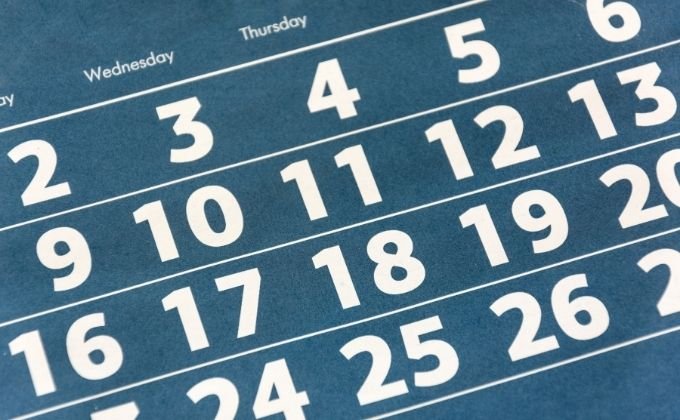Weekly planners are often seen as tools for managing schedules and tracking to-do lists, but their versatility extends far beyond these traditional uses. By thinking creatively, you can transform your weekly planner into a multifunctional resource that enhances various aspects of your life. This article explores innovative ways to use weekly planners, demonstrating how they can serve as powerful tools for personal growth, creativity, and overall well-being.
1. Goal Setting and Tracking
1.1. Long-Term and Short-Term Goals
Weekly planners are excellent for setting and tracking both long-term and short-term goals. Designate a section of your planner for goal setting, where you can outline your objectives and break them down into manageable steps. By integrating these steps into your weekly schedule, you can monitor your progress and stay motivated.
1.2. Habit Tracking
Incorporate habit tracking into your weekly planners to build and maintain positive habits. Create a habit tracker grid or use stickers to mark off daily achievements. This visual representation helps you stay accountable and provides a sense of accomplishment as you see your progress over time.
2. Personal Reflection and Journaling
2.1. Daily Reflections
Use your weekly planner for personal reflection by setting aside space for daily or weekly journaling. Reflect on your experiences, emotions, and achievements. This practice can help you gain insights into your personal growth, identify areas for improvement, and cultivate a sense of gratitude.
2.2. Mood and Wellness Tracking
Incorporate mood and wellness tracking into your planner to monitor your emotional and physical well-being. Create charts or use color-coding to track your mood, energy levels, or health metrics. This information can be valuable for identifying patterns and making adjustments to improve your overall well-being.
3. Creative Projects and Brainstorming
3.1. Idea Generation
Weekly planners can serve as a creative space for brainstorming and idea generation. Use blank pages or sections of your planner to jot down ideas for personal projects, creative writing, or business ventures. Sketch, doodle, or use mind maps to explore your thoughts and develop new concepts.
3.2. Project Planning
Plan and organize creative projects by breaking them down into smaller tasks and scheduling them in your planner. This method helps you track deadlines, allocate resources, and monitor progress, ensuring that your creative endeavors stay on track.
4. Financial Management
4.1. Budgeting and Expense Tracking
Transform your weekly planner into a financial management tool by incorporating budgeting and expense tracking sections. Create monthly budget plans, track your spending, and set savings goals. Regularly reviewing your financial progress in your planner helps you stay on top of your finances and make informed decisions.
4.2. Bill Payment Reminders
Use your planner to set reminders for bill payments and financial deadlines. By scheduling these reminders, you can avoid late fees and keep your financial obligations organized. This proactive approach helps ensure that you manage your finances effectively.
5. Health and Wellness
5.1. Meal Planning
Weekly planners are ideal for meal planning and tracking. Allocate a section for planning your weekly meals, grocery shopping lists, and dietary goals. This approach simplifies meal preparation, promotes healthier eating habits, and reduces food waste.
5.2. Exercise Tracking
Incorporate exercise tracking into your planner to monitor your physical activity. Create a workout schedule, record your exercise routines, and set fitness goals. Tracking your progress in your planner helps you stay motivated and achieve your health and fitness objectives.
6. Travel and Event Planning
6.1. Trip Itineraries
Use your weekly planner to plan and organize travel itineraries. Include details such as flight information, accommodation bookings, and sightseeing plans. Having a dedicated section for travel helps you keep track of essential details and ensures a smooth and enjoyable trip.
6.2. Event Planning
Plan and coordinate events, such as parties, meetings, or social gatherings, using your planner. Create checklists, timelines, and guest lists to ensure that all aspects of the event are organized. This comprehensive approach helps you manage events efficiently and reduces stress.
7. Learning and Development
7.1. Skill Development
Incorporate skill development into your weekly planner by setting learning goals and scheduling time for practice. Whether you’re learning a new language, acquiring a new skill, or pursuing a hobby, allocate specific times in your planner to focus on your development.
7.2. Reading and Research
Track your reading goals and research projects in your planner. Create a reading list, schedule time for reading, and take notes on key insights. This approach helps you stay organized and make steady progress in your intellectual pursuits.
Conclusion
Weekly planners offer far more than just scheduling and to-do lists. By exploring creative uses, you can transform your planner into a multifunctional tool that enhances various aspects of your life. From goal setting and personal reflection to financial management and creative projects, the possibilities are endless. Embrace the versatility of your weekly planner and discover how it can support your personal growth, creativity, and overall well-being.



